8+ Sample Coaching Business Plan
-
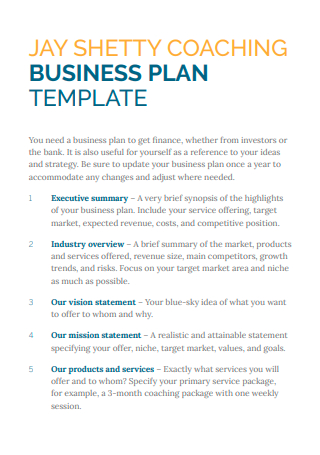
Coaching Business Plan Template
download now -
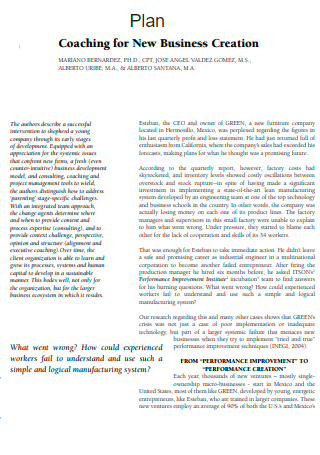
Coaching For New Business Plan
download now -
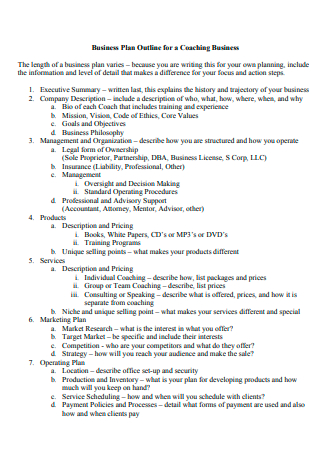
Coaching Business Plan Outline
download now -
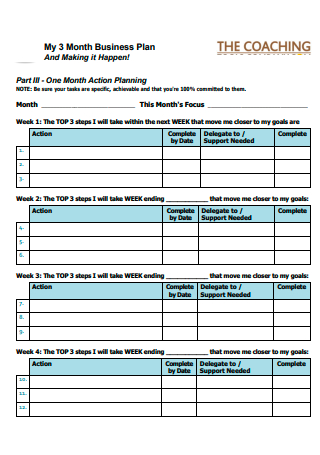
Coaching 3 Month Business Plan
download now -
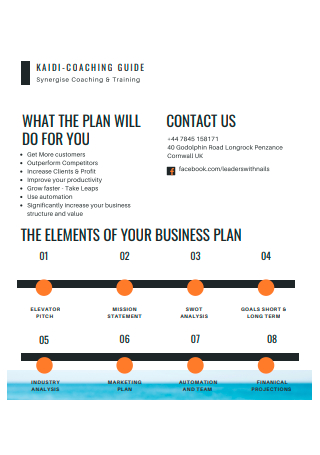
Coaching Business Plan Example
download now -
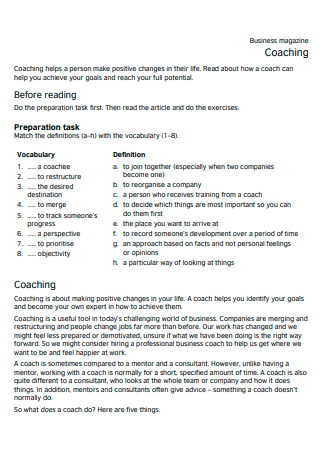
Coaching Business Magazine Plan
download now -
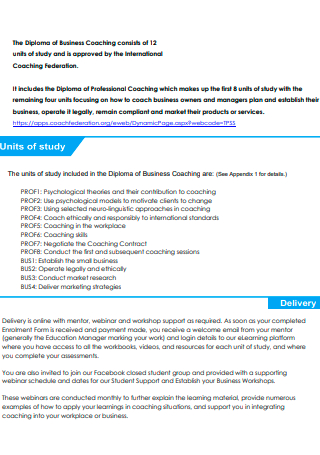
Printable Coaching Business Plan
download now -
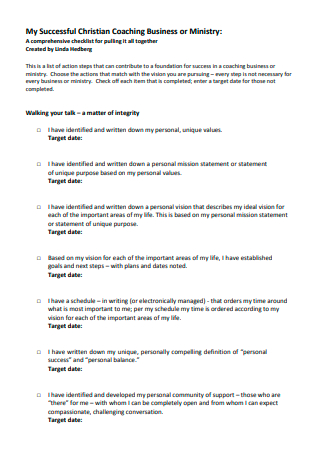
Standard Coaching Business Plan
download now -
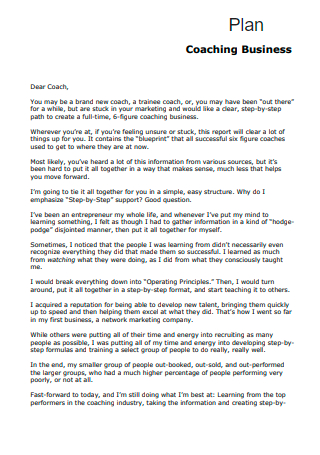
Coaching Business Plan in PDF
download now
FREE Coaching Business Plan s to Download
8+ Sample Coaching Business Plan
What Is a Coaching Business Plan?
Starting a Coaching Business Plan
Different Types of Life Coaching
How to Write a Coaching Business Plan
FAQs
Why is a coaching business plan important?
What are the steps of a business plan?
What is the advantage of hiring a coach?
What Is a Coaching Business Plan?
A coaching business plan is a formal document where you utilize your knowledge to assist clients in changing their lives in a specific area. It outlines your goals and objectives, including your vision statement and mission statement. This document also informs you what techniques to employ to meet your objectives.
Writing a life coaching business plan lays out a path for you to follow to attain your coaching company objectives. This is where a coaching business plan sample is essential for you to use as a reference if you are new to the industry. So, if you are interested in learning more about this document, feel free to read through this article.
Starting a Coaching Business Plan
Entrepreneurs that provide life and business coaching appear to be springing up all over the place. It’s an active industry, but with no admission requirements, anybody with internet access may coach. However, not everyone will be competent or successful. Give this curated list a read especially if you are new to the coaching industry. But if you are already in the business for a long time, then think of this list as a refresher on what aspect you can include or improve in your business.
Different Types of Life Coaching
Life coaching usually takes the form of guided dialogues that assist people in developing a strategy for achieving their objectives and putting them on a path to success. A life coach employs a variety of exploratory tactics, provides advice, and offers support to help people improve. Some life coaches concentrate their practice on specific scenarios. As noted in the preceding list, having a niche might assist you in developing a coaching business plan. Each coach will need to have a full grasp of their natural tendencies to develop a personal coaching approach.
How to Write a Coaching Business Plan
Preparing a business plan for coaching is not an easy thing to do. You have to think of various details that need to be included and most of all, you would worry about the format. Some clients may not be keen on viewing a document’s layout, but some judge the said document. To avoid losing clients, you could use the available coaching business plan template provided.
Step 1: Vision and Mission
This part should detail everything you have in mind for your business. This will offer you direction and keep you focused on your objectives. It energizes and motivates people to make changes. A vision is a visual representation of a concept or idea that you want to realize through your company. After you have described your company’s vision, you will need to compose a mission statement to convey it. The objective of your business is its goal, and it’s crucial for coaching a business strategy. Your professional and personal lives are both driven by your mission.
Step 2: Business Description
In this section, write about your company so that readers can learn more about it. In your coaching business plan, make sure to mention your specialty, services, and products. Set your specialty; the coaching niche will provide a clear picture of your company. It will also assist you in defining your products and services. The list goes on and on, from life coaching to health coaching to career coaching to executive coaching. Determine your area of interest and then get started. Establish your services, billing methods, and formal business website.
Step 3: Target Market
The next stage is to conduct market research on the intended audience. Any coaching business plan must include this aspect. You are not obligated to work with everyone. Make a quick poll to identify who might benefit from your coaching sessions. Make it clear that your chosen business niche is for a specific educational level, such as recent graduates or other business experts. Several variables can help you identify your perfect coaching client. This could assist you in coming up with more successful marketing concepts.
Step 4: Marketing Strategy
In the next section, you will need to describe marketing strategies that are appropriate for your company. Keep in mind that once you’ve identified your target clientele, you should endeavor to locate them using your sales and marketing tactics. To do so, your coaching business strategy should include both offline and online marketing techniques. Offline marketing pertains to traditional means of advertising such as business brochures, pamphlets, billboards, and other means while online marketing refers to advertising your business through social media, your website, and other online news companies.
Step 5: Competition
You must be aware of your competitors to determine the level of competitiveness. You must consider how to distinguish your company apart from its competition. One of the specialists frequently suggests that competitors be used as a source of knowledge. Learning about your competitors helps you to be more aware of what you can offer to your clients that sets you apart from others. This will help you to improve your business plan so that you can distinguish your own business from competitors.
Step 6: Financial Strategy
Now it’s time to make a financial plan. A business cannot expand without money, and a coaching business plan would be incomplete without it. Charging too low may end up costing your business and end up not gaining the actual profit or worth your company has. At the same time, if you price your services way too much, clients may not be too keen to avail of your offer. Ponder over the start-up cost, and financial projections, and even gain funding through investors. You have to match your rates with your intended target audience.
FAQs
Why is a coaching business plan important?
It is critical to design a business coaching program plan whether you are starting a coaching business as an individual or as a company. You may construct a basic business plan without the assistance of a professional business plan writer at first. If you’re a life coach, for example, a life coaching business plan prepared by you will help you focus on the most important aspects of your coaching business.
What are the steps of a business plan?
Making a list of the company’s strengths and weaknesses, going on to a SWOT analysis, writing a short-term and long-term strategy, creating project benchmarks, and defining the key success elements are all steps in a coaching business plan. Another phase is to figure out how to price the company and introduce a new product.
What is the advantage of hiring a coach?
By holding you accountable, business coaches can help you stay on track to meet your objectives. Instead of attempting to handle everything yourself, greater responsibility can help you get results faster. A business coach will assist you in clarifying your objectives and developing an action plan to attain them.
Setting up a coaching center business plan is challenging but through the curated lists and guide found in this very article, you won’t have to feel as though you are completely alone in the field. You won’t worry about the format anymore because we have provided a career coaching business plan sample. Check it out now!
